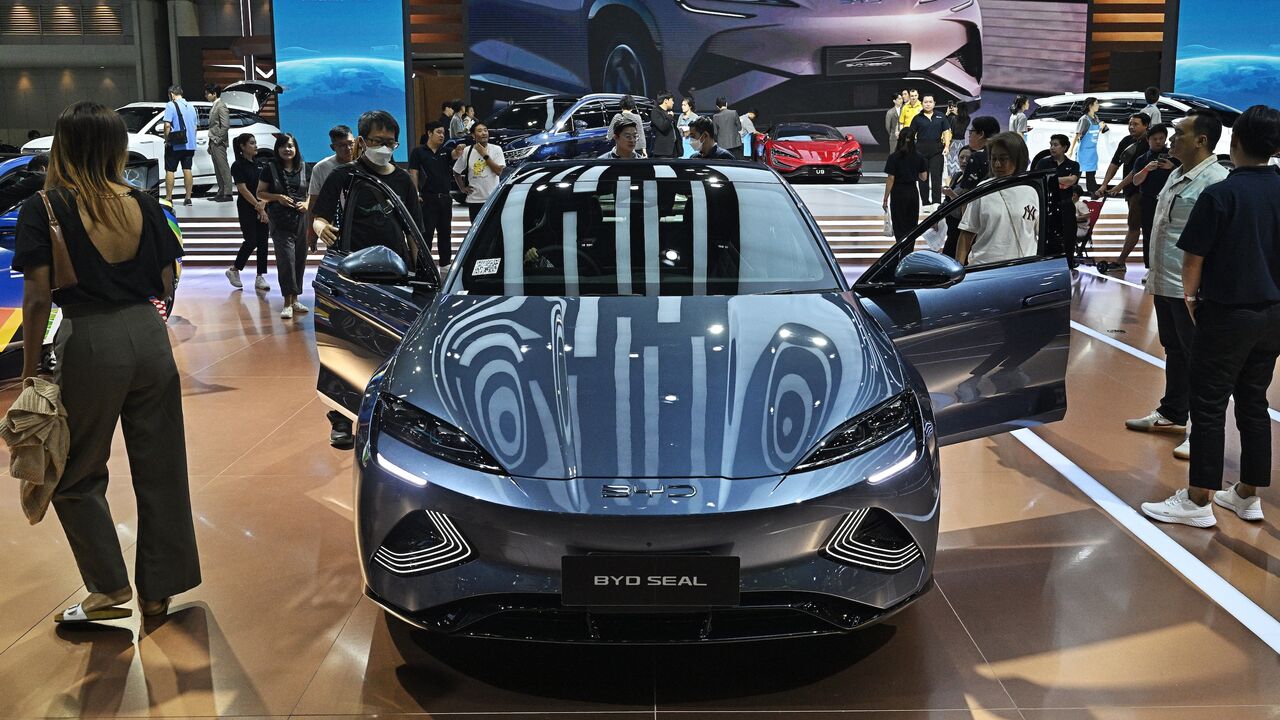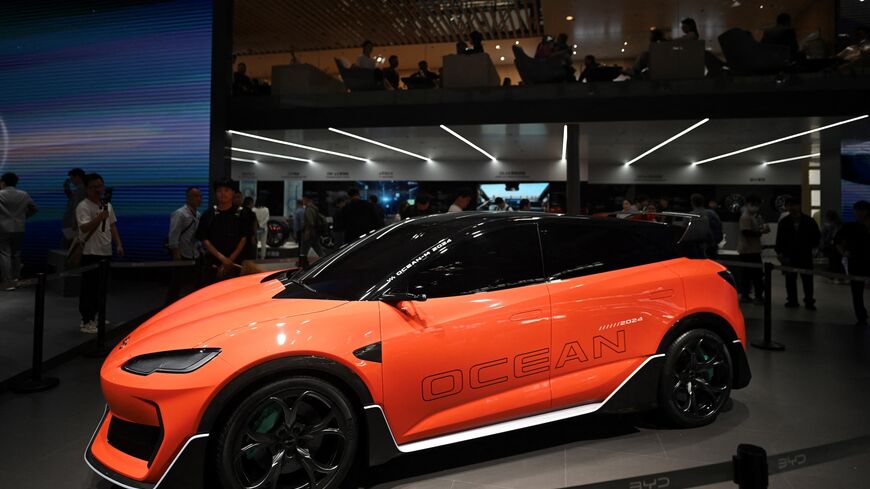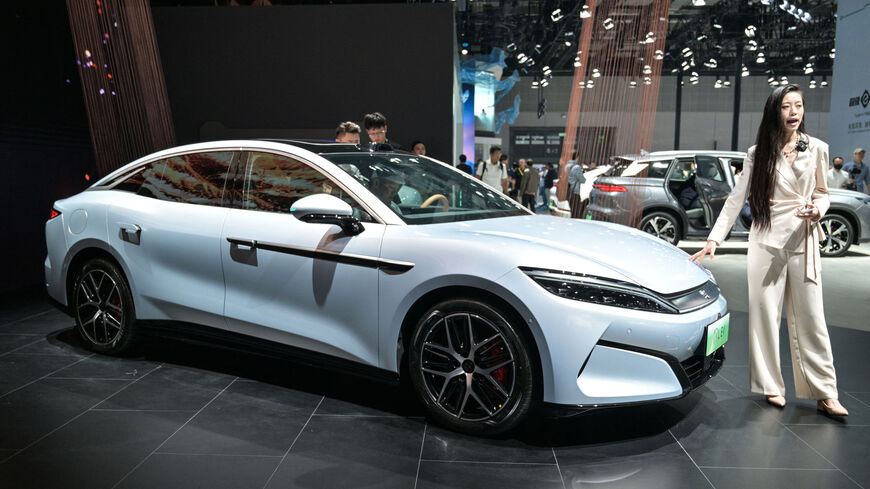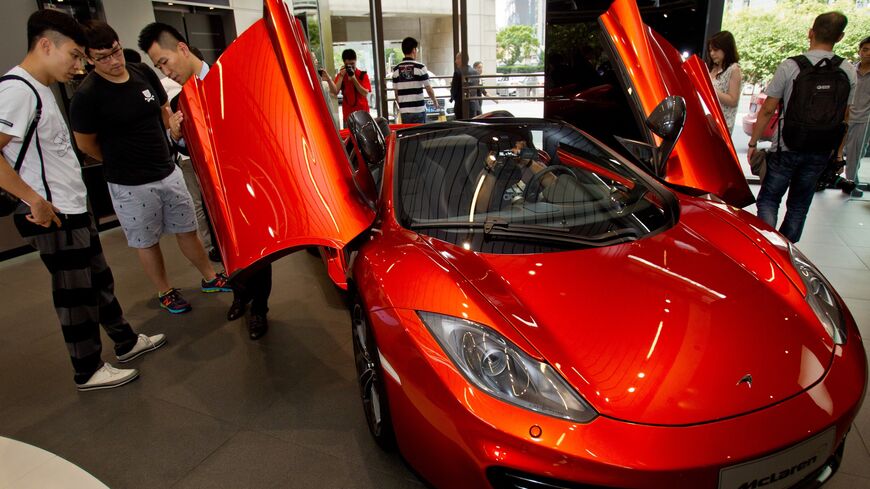Turkey-China in 'advanced' talks on EV manufacturing as Beijing footprint grows
Turkey and the Gulf states are aggressively pursuing electric vehicles with entities eyeing cooperation with China.

Turkey is in negotiations with Chinese electric vehicle (EV) companies to boost investment in the country's own burgeoning EV sector, according to a Friday report, as Ankara seeks to boost this growing sector.
Turkish Industry Minister Fatih Kacir told Bloomberg that negotiations are at an advanced stage with Chinese EV manufacturers BYD Co. and Chery Automobile Co. Ltd. for investments in factories in Turkey. Kacir said Turkey “would like to complete the talks as soon as possible.”
Ankara is also in separate talks with Chinese EV makers SAIC Motor Corp. and Great Wall Motor Co., Kacir told the outlet.
Chery and SAIC are both state owned, while BYD is publicly traded. Great Wall Motor is a private company.
Why it matters: Chinese investment could boost Turkey’s growing EV sector. The Turkish EV producer Togg opened its first plant in 2022 and launched sales last year.
The Turkish domestic market for EVs is expanding. A total of 65,562 fully electric vehicles were sold in Turkey last year, according to the official Anadolu Agency, a more than 800% increase over 2022 sales.
Turkey is additionally seeking to attract American EV giant Tesla. During a September meeting in New York, Turkish President Recep Tayyip Erdogan invited Tesla CEO Elon Musk to build a factory in the country. Musk and Erdogan are friendly. In late 2021, SpaceX, also founded and led by Musk, launched a Turkish satellite into orbit.
The companies with which Turkey is in talks were all among the top 25 EV firms in terms of sales last year, according to the EV Volumes database, and could mean significant investment. BYD was the leading EV seller in 2023, but lost the top spot to Tesla during the first quarter of 2024, Reuters reported.
For China, producing EVs in Turkey could provide it better access to the European market due to Ankara's customs union agreement with the European Union, as noted by Bloomberg. Turkey is the EU's seventh-largest trading partner, accounting for 3.3% of its internal trade, according to bloc statistics.
China might now be especially interested in boosting EV sales in Europe by way of Turkey due to a recent move by the United States. Earlier this week, the Biden administration imposed a 100% tariff on Chinese EVs, making it difficult for the automobiles to enter the American market.
Know more: There is growing competition in the Middle East to develop electric vehicles, a sector where China is increasingly dominating. In February, a subsidiary of the Chinese EV maker Nio Inc. signed a technology licensing agreement with Forseven Ltd., an electric vehicle subsidiary of Abu Dhabi–based CYVN Holdings. The move built on previous cooperation between EV-related entities in China and the United Arab Emirates.
In November, Bloomberg reported that the Saudi Public Investment Fund was in talks to invest $250 million in the Chinese EV firm Human Horizons Group Inc.
Meanwhile, Turkey faces competition in its bid to lure Tesla. In an October Al-Monitor Pro memo, Samuel Wendel reported that Saudi Arabia is offering Tesla incentives to produce vehicles in the kingdom.








